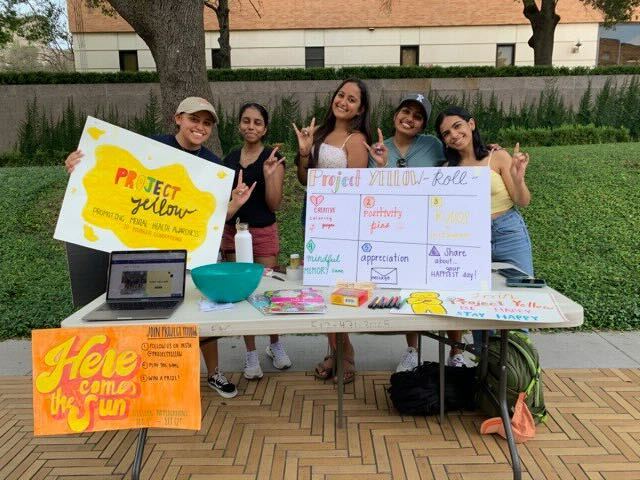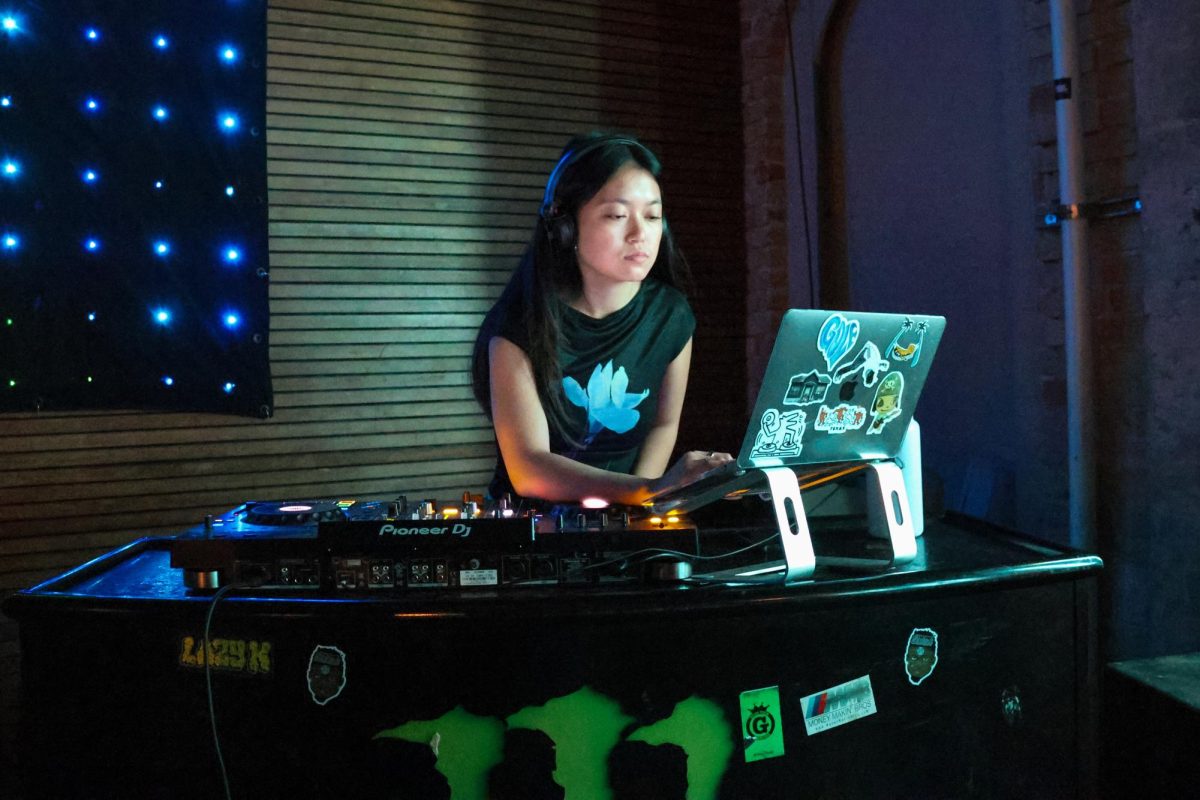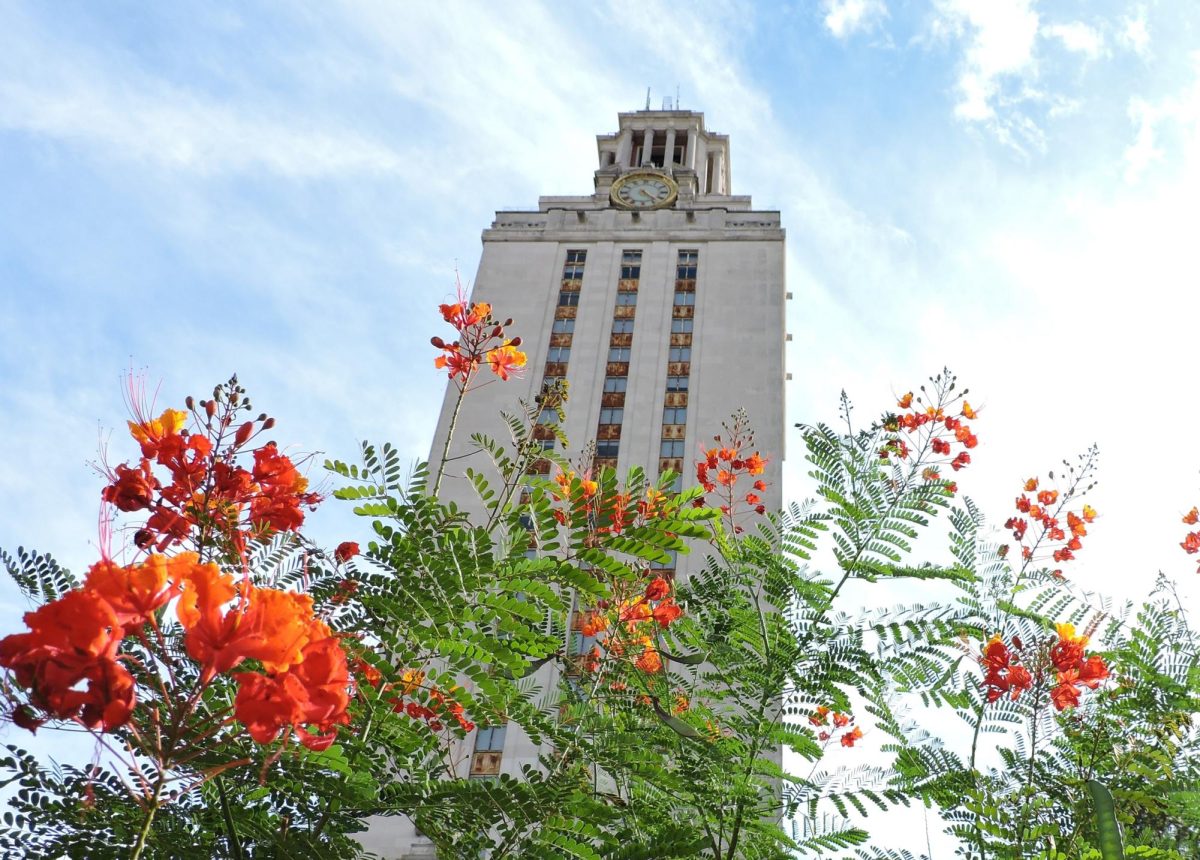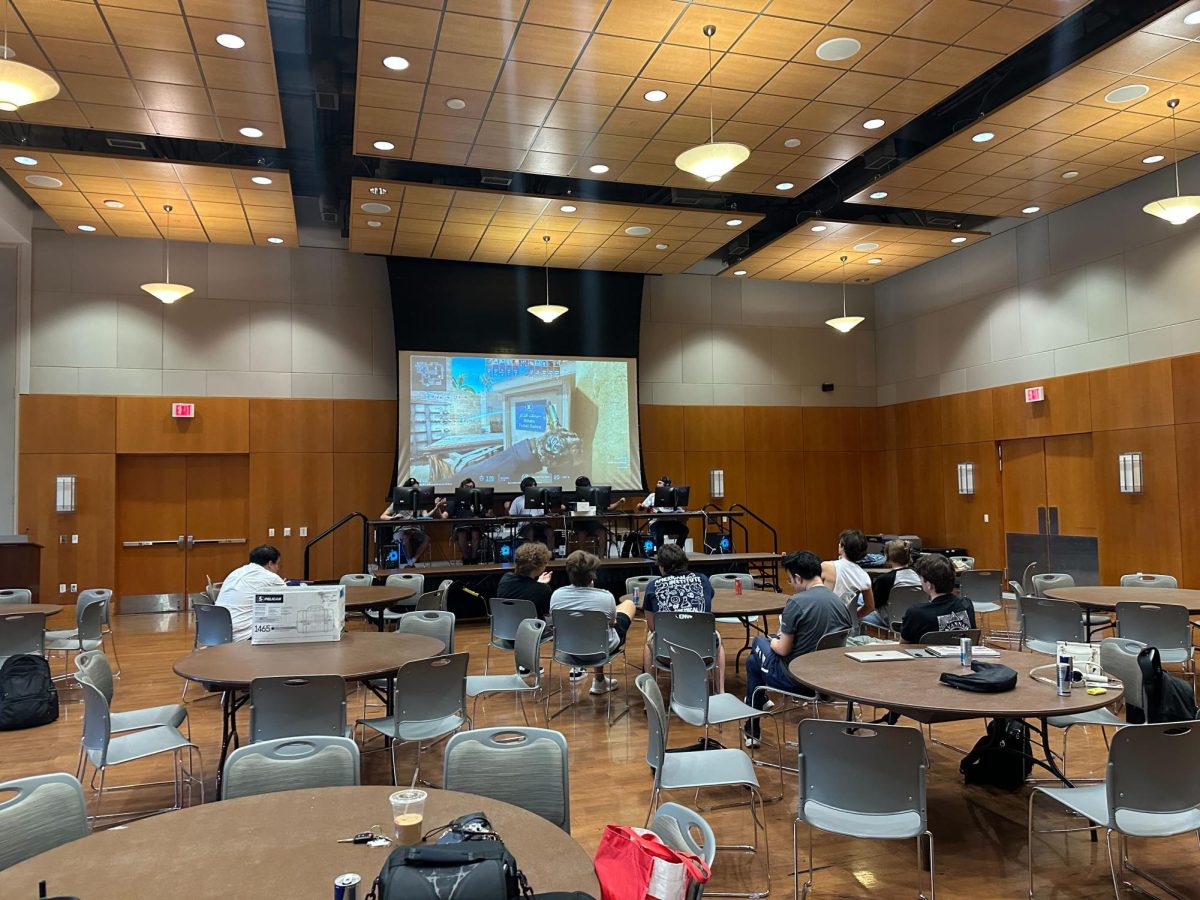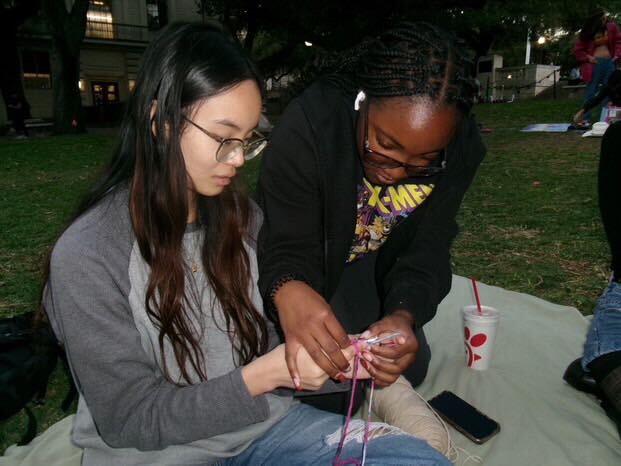Gratitude, stress relief and positivity make up a small fraction of the mental health lesson plans Project Yellow brings to elementary schools in the Austin area. Founded in 2021 by Aayushi Mehta, a human development and family sciences and marketing senior, this student organization educates children about the importance of understanding mental health.
Volunteering at 20 public schools to impact over 600 students in just two years, Project Yellow boasts 100 active members and looks to expand its reach. They aim to become a national organization, reaching not just Austin, but schools across America through college chapters and online resources.
Project Yellow member Giselle Natividad, a health and society sophomore, said kids understand mental health better when they package big ideas into small, hands-on projects. She said interactive activities also leave them with a colorful visual that serves as a reminder of the lesson.
“We teach about gratitude, but we’ll simplify it,” Natividad said. “We have a (sunflower) poster, and we pass around colored paper shaped as petals (for the kids to) write something they’re grateful for. … One by one, they’ll put them on the poster, and I’m like, ‘Whenever you say thank you or show gratitude, your flower is full.’”
Oftentimes, members visit the same classes to teach different lessons. Natividad said she enjoyed forming relationships with the students she met.
“At one of the elementary schools, they mix up the Spanish and English (speaking) kids,” Natividad said. “I’m fluent in Spanish, and (the kids began to) recognize me which was really cute.”
Government sophomore Maya Crane, the external relations director for Project Yellow, said she noticed a difference between grade levels in terms of their response to the material.
“Younger kids tend to be very engaged (and) enthusiastic, making little quips,” Crane said. “Typically, the fifth graders’ responses vary. … Some are engaged, … (while) others are trying to be funny. … You really see the beginnings of their personalities.”
Overall, Crane said she didn’t expect the kids’ eloquent responses to the lessons.
“I was impressed with how well they were able to articulate a lot of their emotions and experiences … talking about (things like) being worried about upcoming surgeries,” Crane said. “I felt very connected with the kids. … Big emotions aren’t something that just adults go through — kids feel them very strongly and deserve support.”
Project Yellow’s future looks bright, Mehta said, as the club works to expand beyond Austin.
“(Our) vision for the future is to have college chapters all around the country and to have students volunteer and go to schools to share these lesson plans,” Mehta said. “The other vision is (growing) our website. … We want to get the resources everywhere so everyone has access.”
Natividad said the club creates a place of healing for officers, members and children alike, impacting so many kids’ lives.
“I wish I knew how to recognize my emotions as a kid,” Natividad said. “For me and a lot of the other (members) in Project Yellow, it helps us with our inner child … making sure (future generations) are not going to go through what we have.”

